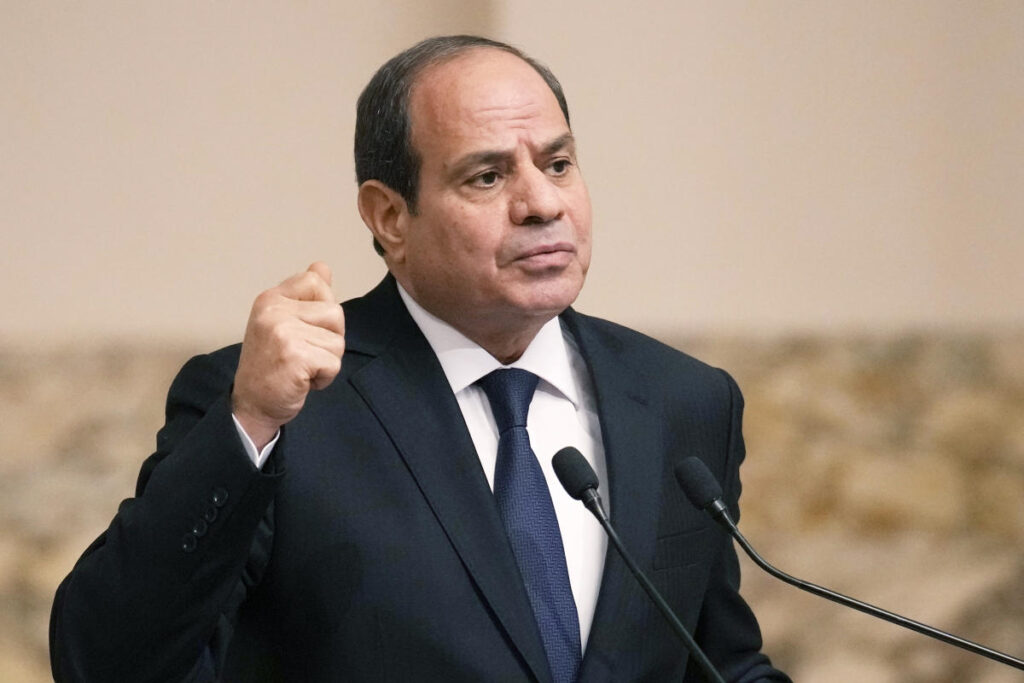In recent developments in Somalia, Egyptian President Abdel Fattah el-Sissi has offered to send peacekeeping troops to support the Horn of Africa nation, particularly as the mandate of longstanding African Union (AU) peacekeepers is set to conclude. This offer was made during a summit held in Asmara, Eritrea, where el-Sissi met with leaders from Somalia and Eritrea to strengthen their cooperation on regional security. Following the summit, the Somali government expressed its approval of Egypt’s proposed deployment as part of a stabilization initiative, intended to fill the security gap once the current African Union forces end their mission in December.
The African Union Mission to Support Stabilization in Somalia (AUSSOM), which is to be established under the aegis of the AU Peace and Security Council, is aimed at securing enhanced peacekeeping efforts in the country. This initiative is particularly significant given Somalia’s ongoing conflict with the Islamic extremist group al-Shabab, which has caused widespread destabilization and violence since it emerged. Having been backed by the AU since 2007 in combat against al-Shabab, Somalia is hopeful that the introduction of Egyptian troops will bolster its security and stabilize the region.
The participation of external forces like Egypt may serve to reinforce the operational capabilities of Somalia’s military as they confront radical groups. The transitional period anticipated following the AU’s withdrawal is crucial, and Somali authorities assert their sovereign rights to dictate key details concerning the troop composition, deployment timetable, and operational tasks of AUSSOM troops. This assertion highlights Somalia’s intention to maintain control over its security landscape amidst external force interventions, indicating a significant step toward self-determination in addressing internal and external threats.
However, the regional security landscape is complicated by existing tensions and disputes among neighboring countries, particularly involving Ethiopia. The relationship between Ethiopia and Egypt has grown strained due to Ethiopia’s construction of a multibillion-dollar dam on the Blue Nile River, which Egypt fears will threaten its water security. The dam is intended to provide Ethiopia with much-needed electricity, but Egypt’s apprehension underscores the delicate balance of water resource management in the region and the potential for conflict as nations vie for control over essential resources.
Furthermore, Somalia is also embroiled in a dispute with Ethiopia over the Somaliland region. Landlocked Ethiopia is seeking access to the Red Sea through a contentious agreement with Somaliland, which involves recognizing Somaliland’s independence in return for the establishment of an Ethiopian marine base along its coastline. This arrangement poses a direct challenge to Somalia’s territorial integrity since Somaliland declared independence over 30 years ago, although it remains unrecognized by the African Union and United Nations. The government’s resistance to this agreement reflects deep-rooted concerns regarding sovereignty and regional stability.
As Somalia navigates these intricate geopolitical dynamics, the collaboration with Egypt may mark a pivotal moment in its quest for stability. The implications of these partnerships extend beyond mere troop deployments to encompass broader regional security frameworks, alliances, and the management of disputes that impact the social and economic fabrics of the Horn of Africa. Ultimately, the effective resolution of internal conflicts and external pressures will depend on the cohesive efforts of regional players and the commitment to fostering a sustainable path toward peace and security in Somalia.

